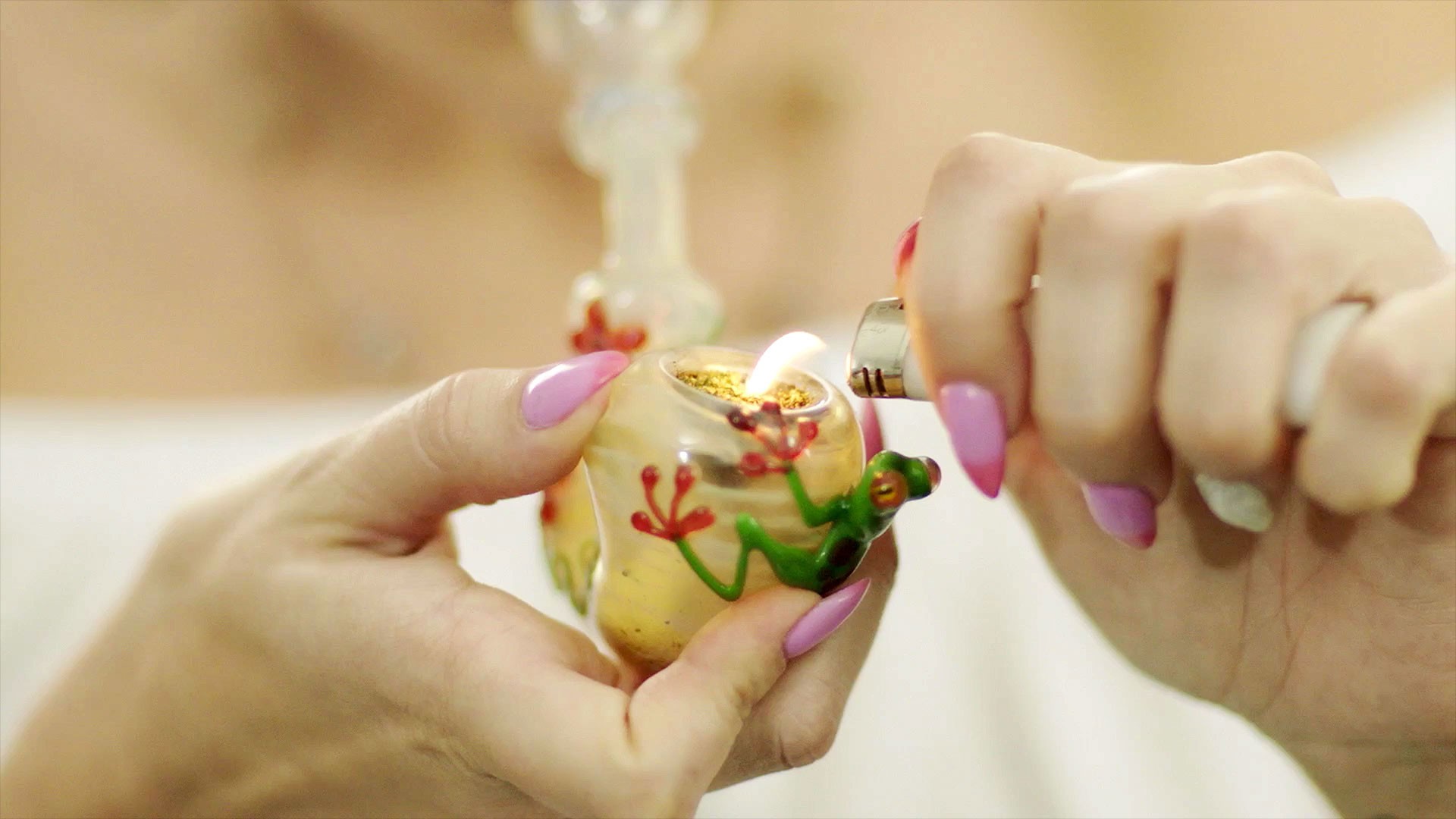Studio Firma/Stocksy
A small pilot study of eight women suggests that mothers who smoke marijuana transfer small amounts of THC to their children via breastmilk. It's essentially the first such study in 35 years: A 1982 study suggested THC could be found in breastmilk from moms who’d smoked, but there wasn’t much other research. (Smoking pot during pregnancy has received much more attention.)THC, or tetrahydrocannabinol, is the main psychoactive ingredient in cannabis. While the study notes that it’s unclear how such early exposure to even low levels of THC might affect infants, a growing body of evidence associates regularly smoking marijuana with attention, learning, and memory impairment among teens, whose brains are still developing.“That’s the real worry. I don’t think there’s any question now that there are some real concerns about using marijuana on developing brains,” says Teresa Baker, the study’s co-author and a practicing OB-GYN at Texas Tech University School of Medicine. She notes studies showing a negative and irreversible effect on higher-order functions such as learning, memory, and emotional control. “I think there’s a lot of data that says in the developing brain it’s dangerous.”Baker and her colleague Thomas Hale decided to pursue their study after receiving calls about marijuana to the hotline at the Infant Risk Center, which provides medical advice about pregnancy and lactation to healthcare professionals and young moms. They started receiving more calls asking about the effects of smoking weed, either recreationally or medicinally, on breast milk. “We really didn’t have an answer for them,” she says.
More from VICE:
They recruited eight women—most were occasional marijuana smokers, while one was a chronic smoker. Baker says they had trouble finding participants, given the legal concerns of marijuana-smoking parents and possibly because they required subjects to not smoke for 24 hours in order to get a baseline sample of their milk. But after a day of abstaining, participants smoked pot provided by a legal medical marijuana dispensary in Colorado. They all used the same strain and same dose, to minimize variables. Their breast milk was then tested for THC and its metabolites at 20 minutes, one hour, two hours, and four hours after smoking.Each subject smoked 0.1 grams of cannabis, which had a 23.18 percent concentration of THC—mass spectrometry confirmed the chemical makeup. For comparison’s sake, the study cites previous research finding that “an average cannabis cigarette contained approximately 0.6 grams of cannabis, containing approximately 3.55 percent tetrahydrocannabinol.”Testing the breastmilk, researchers calculated that an infant that was exclusively breastfeeding would receive an average of 2.5 percent of the mother’s dose of THC. In this case, that would be a daily dose of about 8 micrograms.
Advertisement
More from VICE:

They recruited eight women—most were occasional marijuana smokers, while one was a chronic smoker. Baker says they had trouble finding participants, given the legal concerns of marijuana-smoking parents and possibly because they required subjects to not smoke for 24 hours in order to get a baseline sample of their milk. But after a day of abstaining, participants smoked pot provided by a legal medical marijuana dispensary in Colorado. They all used the same strain and same dose, to minimize variables. Their breast milk was then tested for THC and its metabolites at 20 minutes, one hour, two hours, and four hours after smoking.
Advertisement
Those are small numbers, and Baker says there are other questions to answer. The study had a small number of participants. Further research comparing chronic and occasional users would be valuable, as would be study of how smoking marijuana compares to using edibles. Ultimately, researchers would want to test the infants directly to find out just how much THC they’d ingested. But for ethical reasons that’s a tougher proposition.In other words, more science is needed. Baker says that although the levels of THC transmitted through breastmilk are low, they’re still concerning. “We’re not interested in taking babies away or criminalizing moms,” she says. “But we want them to know the choice they’re making for their child, and what those implications could be.”Sign up for our newsletter to get the best of Tonic delivered to your inbox weekly.